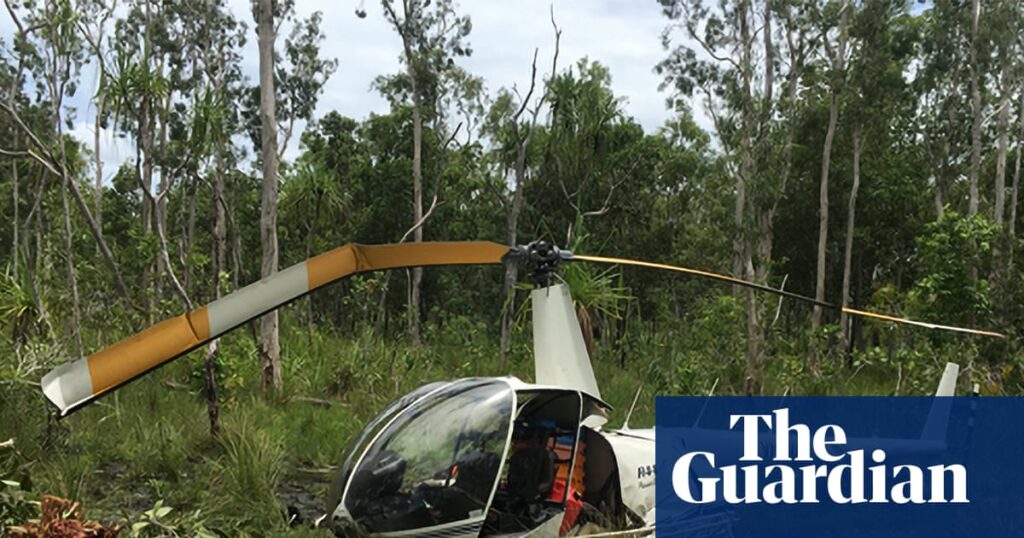A pilot panicked and lied to air crash investigators after a helicopter accident that killed Outback Wrangler co-star Chris “Willow” Wilson, a court has been told.
Sebastian Robinson, who was left a paraplegic by the February 2022 crash in remote swampland in the Northern Territory, on Tuesday gave evidence in the trial of reality TV star Matt Wright.
Wright has pleaded not guilty to three charges of attempting to pervert the course of justice.
Prosecutors allege he was worried crash investigators would discover that flight-time meters were disconnected regularly to extend flying hours beyond official thresholds and paperwork was falsified.
Wilson was slung on a line below a chopper during a crocodile-egg collecting mission when he plunged to his death.
The aircraft then crashed, seriously injuring Robinson, who on Tuesday appeared by video link in a wheelchair.
Questioned by crown prosecutor Jason Gullaci SC, the 32-year-old admitted lying to air crash investigators and NT Police about falsifying flight-hour records and disconnecting Hobbs meters.
He said he was worried he would be blamed for the crash or that he would lose his pilot’s licence.
“Obviously I was panicking … I was scared.”
Robinson agreed he must have “intentionally disconnected” the sling line from the helicopter and Wilson fell about 25 metres to the ground, as ascertained by air crash investigators.
When asked what might have happened in the case of total engine failure if he had not released Wilson, Robinson said it would have been “catastrophic”, with the helicopter crash-landing on top of his friend.
Robinson gave evidence Wright told his pilots to “pop the clock” on their machines so flight hours would go unrecorded and service checks could be put off.
The Outback Wrangler star was looked up to by young pilots who readily followed his orders despite his failure to follow aviation rules, he said.
At the time of the crash, Robinson was head of aircraft airworthiness and maintenance control for Wright’s Helibrook company, but in name only.
Wright, the chief pilot, made the decisions about aircraft flying hours and maintenance schedules, he said.
Robinson agreed disconnecting Hobbs flight-hour recording meters and falsifying paperwork to match was a “very common” practice at Helibrook, with Wright directing pilots to do so.
“He’d say ‘pop the clock for this trip’,” Robinson said, referring to disconnecting meters.
When asked if he and other pilots obeyed Wright’s instructions he replied: “Absolutely … if he said jump I’d say how high”.
after newsletter promotion
Wright was a major public figure, everyone wanted to work for him and young pilots wanted to please the TV star, Robinson said.
Gullaci asked him if he could detail his injuries sustained in the crash.
“I can but it obviously it makes me a little bit upset,” Mr Robinson replied, saying he could not remember the crash.
He listed fractures of his vertebrae resulting in a complete severance of his spinal cord, rendering him a paraplegic.
Both his lungs were punctured, his left elbow and ankles were fractured and he suffered a traumatic brain injury that still causes him cognition problems and mood swings.
“I definitely feel I’m a different person,” he told the court.
Robinson admitted he had used cocaine about twice a year in the five years before the crash but he had not flown helicopters while intoxicated.
“Are you a raging cocaine junkie, Mr Robinson? Gullaci asked.
“Not at all,” Robinson replied.
The charges against Wright do not relate to the cause of the accident and the prosecution does not allege he is responsible for either the crash, Wilson’s death or Robinson’s injuries.
The trial continues.


